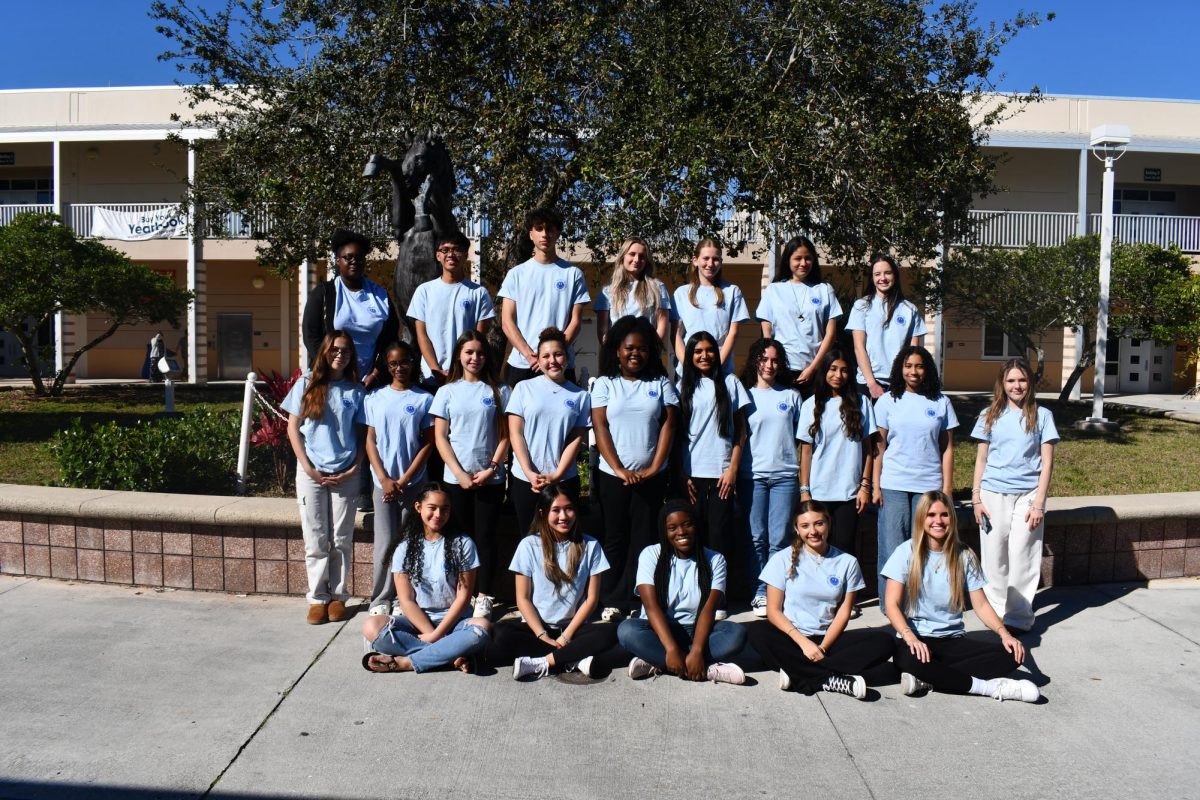Minority-owned businesses delivering quality with culture in South Florida
January 6, 2021
The smell of an authentic Jamaican meal. Patterned dresses inspired by Costa Rican beaches. Rich dark chocolate manufactured by members of the Chickasaw Nation. For students, it might seem impossible to obtain these products and the joy that comes with them. However, some of the best minority-owned businesses in South Florida are serving up all the feels for both the colorful and the unusual.
This summer, alongside a plethora of movements like Me Too, Black Lives Matter, and March for Our Lives, people began using social media platforms to bring attention to minority-owned businesses. Local Floridian activists were also looking to acknowledge and point out great South Florida alternatives to purchasing from larger corporations.
“To support minority businesses, kids can easily look up ‘Black-owned, Indigenous, or any other minority businesses near me,’” shared junior Sarah Garfield. “All it takes is a simple Google search.”
Nowadays, nearly every small business makes it known about their services online. Take Cafe Sweets Bakery, a black-owned business located in West Palm Beach, for instance. A quick check on Google provides images of their physical store, sporting a storefront display of frosted cupcakes prepped for visitors. On their website, Floridians can find complete directions to their physical locations as well as all their popular takeout alternatives such as Grubhub and Ubereats.
Advocates of minority-owned businesses make the argument that economically, shoppers have a “buying power” to choose whether their next dollar goes towards a big brand or a local business. Some consider the warmness that comes from local minority businesses to be worth the trip and more.
“They are truly some of the most welcoming businesses,” said junior Tiffany Ross, whose grandfather, is an African-American who just retired as a tailor in Miami. “There’s a sense of comradery, and I think more people need to see it.”
For these businesses, the goal may not originally be about cultivating a brand or generating massive profits; some are instead driven by passion and love for their communities.
Almar Cosmetics, for example, is a Miami-based online makeup company specializing in lip glosses, blush kits, and primers. Many products on the company’s website give tribute to the founder’s Hispanic roots.
“As a Latina cosmetic business owner, I love empowering beauty-lovers to wear vivid colors — colors that resemble our roots,” explained Gabriella Trujilo, the founder of Alamar cosmetics in an interview with Popsugar. “It’s essential for me to always keep my culture at top of mind when it comes to creating products.”
But in today’s competitive market, businesses with unique passions still must learn how to operate and manage to keep their business and payroll afloat. This means owners themselves may have to take on the significant responsibility of handling customer service, marketing, modeling, branding, and strategy just to get their message out.
“He did everything,” explained Ross referring to the Miami-based clothing business her grandfather owned for 40 years. “He was the owner and the manager, and it was something he was very passionate about.”
On top of the everyday struggles of owning a business, minority-owned businesses also have to deal with other significant disadvantages. According to a report from the Kellogg Foundation, minorities tend to have far less access to opportunities for capital, funding, and business management skills. Additionally, although blacks and Hispanics open as many businesses as non-minorities do, they often have a harder time getting small business loans. This is because minorities tend to have a lower net worth and less credit history than non-minorities.
In fact, according to the Federal Reserve Bank of Cleveland, while black households tend to have an average wealth of $140,000 as of 2016, white households have an average of $900,000. These apparent disparities in wealth as well as the systemic disadvantages minorities have are called the racial wealth gap. As a result, minority-owned business survival and profitability rates are substantially less than non-minority owned businesses.
“The racial wealth gap limited minority opportunities in the first place,” explained Garfield. “It’s important to talk about it because closing the gap depends on community awareness and support to minority businesses.”
These challenges were only heightened when the COVID-19 pandemic began. Immediate lockdowns putting businesses in a panic as well as a decrease in consumerism devastated minority (especially black-owned) businesses. They also had a harder time receiving financial assistance such as the Paycheck Protection Program than non-minority owned businesses.
On top of that, during March, Asian-owned businesses in South Florida reported that they were subject to insensitive and racist remarks that drove some businesses to the brink of closing. But even though these hardships, many found ways to save their businesses.
Trindy Gourmet, for example, is a chain of restaurants and catering service on Rosemary Avenue in West Palm Beach. When the pandemic hit in March, Trinnette Morris, the owner, innovated her business to match the new limitations.
“The responsibility I take is not to just stay above floating as a business, but to be of service in any way I can,” shared Morris in an interview with NBC News. ‘“So, that’s why, even though we were not ready to open the doors, the doors are open.’”
During the lockdown, instead of fully opening, Morris had set up “pop-up” food events to take up orders for a certain amount of time while remaining socially distant. This allowed for her employees to receive paychecks and locals to order food safely at discounted prices.
Even with these successes, there’s still no doubt that businesses remained in jeopardy of losing it all. Yelp.com reported that 97,000 businesses as of September permanently shut down during the pandemic. In contrast, Amazon raked in billions of dollars in 2020 and grew by nearly 60 percent during the pandemic according to Reuters.
“People sometimes don’t want to take the time to research new and small businesses, ” added Garfield. “Companies such as Amazon and Walmart seem convenient and easy.”
While Amazon does attempt to support small, locally-owned businesses, they spend little money to market it and it can be tricky to find those organizations on their website. Shoppers can access women owned, military owned, black owned, and family owned businesses by clicking on “All” in the upper left (under Amazon’s logo) of the website, scroll down to “Programs and Features,” and click on “Small & Medium Businesses.”
To protect local minority businesses from getting washed out, advocates are continuing to actively refer, write reviews, and post about them on social media in addition to becoming customers.
In the scope of it, the consumer dollar doesn’t lie in the hands of a mega-corporation like Amazon, it’s always been in the hands of the consumer. But the decision is no longer just for adults to make, teens and young adults will soon inherit their communities and either continue nurturing the businesses that enriched their childhood or ignore the pillars of the community and let the foundation crack.
For more information please visit:
http://www.sfrpc.com/ftp/pub/ed/Minority%20Business%20Directory.pdf



